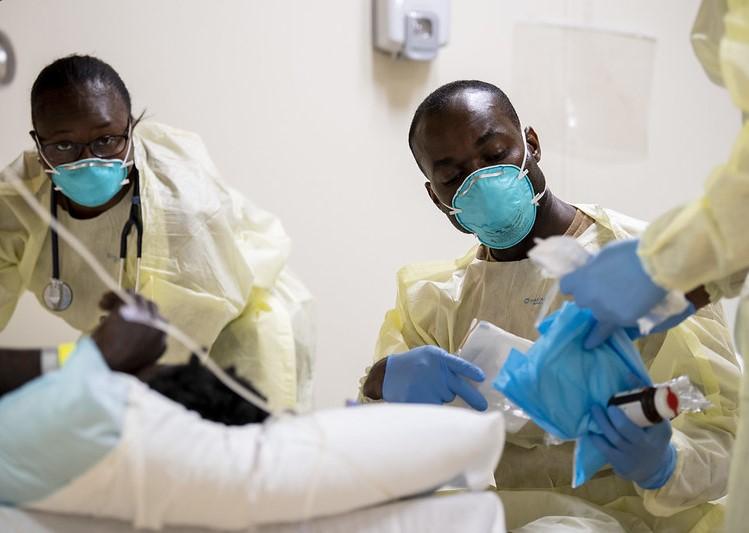Since the COVID-19 pandemic began over a year ago, death rates in US hospitalized patients decreased from 19.7% in April 2020 to 9.3% in November, according to a study published last week in JAMA Network Open.
While this may reflect improved treatments and standards of care, a JAMA Network Open research letter published this week highlights how COVID-19 can still complicate healthcare: 15% of COVID-positive patients died after surgery, compared with 7% of those without COVID.
Drop in deaths especially pronounced in elderly
From March 2020 to November 2021, researchers from Merck looked at 503,409 patients hospitalized for at least 1 day in 1,209 US acute care hospitals, of whom 8.5% were COVID-positive. Those with COVID-19 had an 11.0% overall in-hospital mortality rate, compared with 2.5% in those without COVID.
Rates increased with all patients' ages but remained much higher in those with COVID: 20.9% of those older than 75 with COVID-19 died, compared with 4.5% of those without COVID. About half of those hospitalized with COVID were men (50.7%), who had a 12.5% death rate, compared with 9.6% in COVID-positive women.
Overall, in-hospital mortality rose from March to April, going from 10.6% to 19.7%, and then decreased to 9.3% by November, with every age-group's mortality rate cut in half.
"It was important to evaluate SARS-CoV-2 positive and negative hospitalized persons to see if trends that we observed were associated with SARS-CoV-2 only or with all hospitalized persons during the study period," corresponding author Lyn Finelli, DrPH, MS, a scientist with Merck, told CIDRAP News.
"In fact, mortality remained stable for SARS-CoV-2 negative hospitalized persons while mortality declined for SARS-CoV-2 positive hospitalized persons during the study period," she added.
The researchers say this improvement could be due to better COVID-19 standards of care, such as using remdesivir and systemic corticosteroids and placing patient in the prone position (face down).
The data also showed changes in who was hospitalized for COVID-19. Hospitalizations in those 18 to 49 increased from 20.7% in April to 30.3% in June and 29.6% in July. This surge overtook the 50- to 64-year-old age-group and most likely reflected an increase in the COVID-19 caseload in younger populations, according to the study authors.
COVID tied to higher post-op death rates
The other JAMA Network Open study also included a COVID and a non-COVID group, but in this one, each 5,470-person cohort was matched on a 1:1 ratio based on age, illness severity, and healthcare costs.
All surgical specialties except gynecologic, obstetrical, or minor procedures were included.
"Our group was interested in better understanding the validity of perioperative testing for COVID and its significance," lead author Max Haffner, MD, with the University of California Davis, San Francisco, said. "Particularly, we wanted to better understand the validity in delaying surgery secondary to a positive test."
Haffner and his colleagues found that, in the COVID-infected group, in-hospital mortality rate was more than double (14.8% vs 7.1%). Also, hospital-acquired conditions such as catheter-associated urinary tract infections and safety indicators like post-operative hemorrhaging were both higher in those with COVID-19 (2.0% vs 0.8% and 3.3% vs 2.4%, respectively).
The team found no significant differences in complication rates and median length of hospital stay. Among patients with COVID-19, the status of the hospital had no associated effect on mortality rates, complications, hospital-acquired conditions, or patient safety indicators, either.
"As the COVID-19 pandemic continues and surges, we need to balance patients' surgical needs with COVID-19–specific risks in the setting of a strained health care system," the researchers conclude. "Postponing surgery should be recommended for patients with a positive preoperative COVID-19 test result when possible unless surgical intervention is absolutely necessary for life- or limb-saving measures.
Although the study didn't specifically look at how patients with long-term COVID-19 symptoms might have had different surgery outcomes, Haffner said the phenomenon warrants further investigation.





















